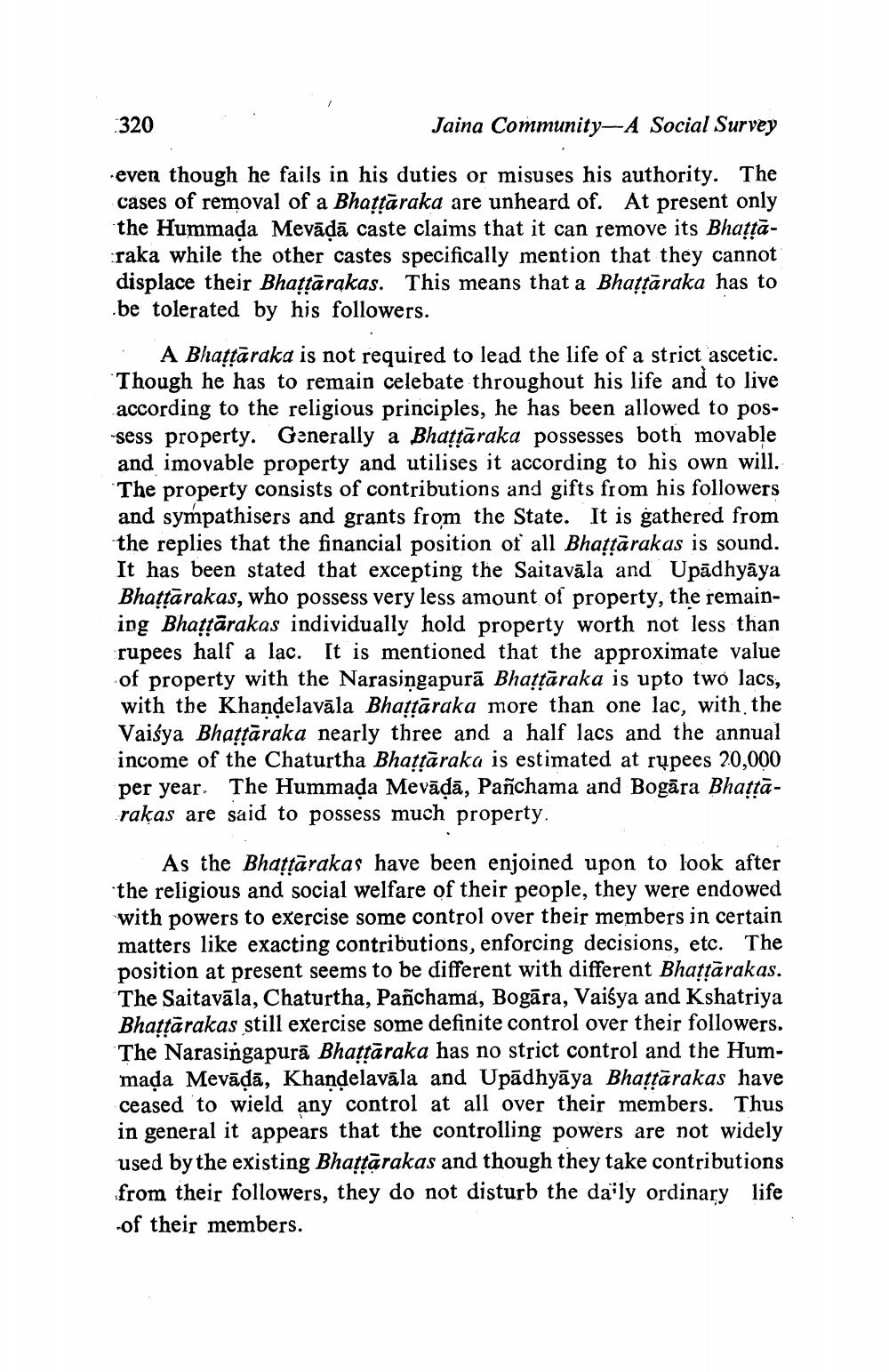________________
320
Jaina Community-A Social Survey
even though he fails in his duties or misuses his authority. The cases of removal of a Bhattāraka are unheard of. At present only the Hummada Mevādā caste claims that it can remove its Bhattāraka while the other castes specifically mention that they cannot displace their Bhattārakas. This means that a Bhattāraka has to be tolerated by his followers.
A Bhattāraka is not required to lead the life of a strict ascetic. Though he has to remain celebate throughout his life and to live according to the religious principles, he has been allowed to possess property. Generally a Bhattāraka possesses both movable and imovable property and utilises it according to his own will. The property consists of contributions and gifts from his followers and sympathisers and grants from the State. It is gathered from the replies that the financial position of all Bhattarakas is sound. It has been stated that excepting the Saitavāla and Upādhyāya Bhattārakas, who possess very less amount of property, the remaining Bhattārakas individually hold property worth not less than rupees half a lac. It is mentioned that the approximate value of property with the Narasingapurā Bhattāraka is upto two lacs, with the Khandelavāla Bhattāraka more than one lac, with the Vaisya Bhattāraka nearly three and a half lacs and the annual income of the Chaturtha Bhattāraka is estimated at rupees 20,000 per year. The Hummada Mevādā, Pañchama and Bogāra Bhattarakas are said to possess much property.
As the Bhattārakas have been enjoined upon to look after the religious and social welfare of their people, they were endowed with powers to exercise some control over their members in certa matters like exacting contributions, enforcing decisions, etc. The position at present seems to be different with different Bhattārakas. The Saitavāla, Chaturtha, Pañchama, Bogāra, Vaisya and Kshatriya Bhattārakas still exercise some definite control over their followers. The Narasingapurā Bhattāraka has no strict control and the Hummaďa Mevādā, Khandelavāla and Upādhyāya Bhattārakas have ceased to wield any control at all over their members. Thus in general it appears that the controlling powers are not widely used by the existing Bhattarakas and though they take contributions from their followers, they do not disturb the daily ordinary life of their members.




